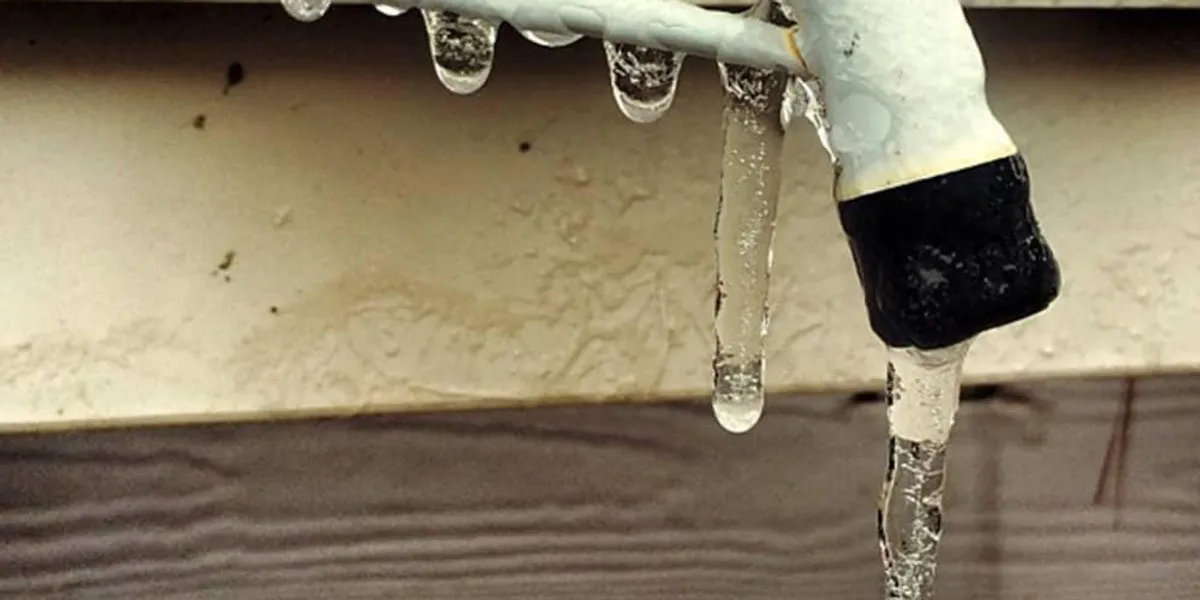Protecting Against Frozen Pipes in Cold Weather: Pro Advice
Click HereWhat are your opinions on How to Prevent Your Pipes From Freezing?

Winter can ruin your pipes, particularly by freezing pipelines. Below's just how to stop it from taking place and what to do if it does.
Intro
As temperatures decrease, the danger of frozen pipelines increases, possibly resulting in expensive repair services and water damage. Recognizing exactly how to avoid icy pipelines is vital for property owners in chilly environments.
Avoidance Tips
Shielding at risk pipelines
Cover pipelines in insulation sleeves or make use of warmth tape to shield them from freezing temperature levels. Concentrate on pipes in unheated or outside areas of the home.
Home heating strategies
Maintain interior spaces properly heated, specifically areas with plumbing. Open up cupboard doors to permit cozy air to circulate around pipelines under sinks.
Exactly how to recognize frozen pipelines
Search for decreased water flow from faucets, unusual odors or sounds from pipelines, and visible frost on exposed pipelines.
Long-Term Solutions
Architectural changes
Take into consideration rerouting pipelines away from outside walls or unheated locations. Add extra insulation to attic rooms, cellars, and crawl spaces.
Upgrading insulation
Buy high-grade insulation for pipes, attics, and wall surfaces. Proper insulation assists keep consistent temperatures and lowers the risk of frozen pipes.
Shielding Outdoor Plumbing
Garden hose pipes and outside taps
Separate and drain pipes yard pipes prior to winter season. Set up frost-proof spigots or cover outdoor faucets with insulated caps.
Comprehending Frozen Pipelines
What creates pipelines to freeze?
Pipes ice up when revealed to temperature levels below 32 ° F (0 ° C) for extended periods. As water inside the pipelines freezes, it increases, taxing the pipe walls and possibly causing them to rupture.
Dangers and problems
Icy pipes can cause supply of water interruptions, residential or commercial property damage, and expensive fixings. Ruptured pipelines can flood homes and create extensive architectural damages.
Indications of Frozen Pipes
Identifying frozen pipelines early can stop them from bursting.
What to Do If Your Pipes Freeze
Immediate actions to take
If you believe icy pipelines, keep faucets open to alleviate stress as the ice thaws. Make use of a hairdryer or towels soaked in hot water to thaw pipes gradually.
Final thought
Stopping frozen pipelines needs proactive actions and fast reactions. By understanding the reasons, signs, and safety nets, house owners can safeguard their pipes throughout cold weather.
Helpful Tips to Prevent Frozen Pipes this Winter
UNDERSTANDING THE BASICS: WHY PIPES FREEZE AND WHY IT’S A PROBLEM
Water freezing inside pipes is common during the winter months, but understanding why pipes freeze, and the potential problems it can cause is crucial in preventing such incidents. This section will delve into the basics of why pipes freeze and the associated problems that may arise.
THE SCIENCE BEHIND FROZEN PIPES
When water reaches freezing temperatures, it undergoes a physical transformation and solidifies into ice. This expansion of water as it freezes is the primary reason pipes can burst. As the water inside the pipe freezes, it expands, creating immense pressure on the walls. If the pressure becomes too great, the pipe can crack or rupture, leading to leaks and water damage.
FACTORS THAT CONTRIBUTE TO PIPE FREEZING
Low Temperatures: Extremely cold weather, especially below freezing, increases the risk of pipes freezing. Uninsulated or Poorly Insulated Pipes: Pipes located in unheated areas, such as basements, crawl spaces, or attics, are more prone to freezing. Insufficient insulation or lack of insulation altogether exacerbates the problem. Exterior Wall Exposure: Pipes running along exterior walls are susceptible to freezing as they encounter colder temperatures outside. Lack of Heating or Temperature Regulation: Inadequate heating or inconsistent temperature control in your home can contribute to frozen pipes. PROBLEMS CAUSED BY FROZEN PIPES
- Pipe Bursting: As mentioned earlier, the expansion of water as it freezes can cause pipes to burst, resulting in significant water damage.
- Water Damage: When pipes burst, it can lead to flooding and water damage to your property, including walls, ceilings, flooring, and personal belongings.
- Structural Damage: Prolonged exposure to water from burst pipes can compromise the structural integrity of your home, leading to costly repairs.
- Mold and Mildew Growth: Excess moisture from water damage can create a favorable environment for mold and mildew growth, posing health risks to occupants.
- Disrupted Water Supply: Frozen pipes can also result in a complete or partial loss of water supply until the issue is resolved.
WHY CERTAIN PIPES ARE MORE PRONE TO FREEZING
- Location: Pipes located in unheated or poorly insulated areas, such as basements, crawl spaces, attics, or exterior walls, are at higher risk of freezing.
- Exterior Pipes: Outdoor pipes, such as those used for irrigation or exposed plumbing, are particularly vulnerable to freezing as they are directly exposed to the elements.
- Supply Lines: Pipes that carry water from the main water supply into your home, including the main water line, are critical to protect as freezing in these lines can affect your entire plumbing system.
- Underground Pipes: Pipes buried underground, such as those connected to sprinkler systems or outdoor faucets, can be susceptible to freezing if not properly insulated.
https://busybusy.com/blog/helpful-tips-to-prevent-frozen-pipes-this-winter/

I was brought to that editorial on Preventing and dealing with frozen pipes through an associate on our other website. Sharing is good. You just don't know, you will be doing someone a favor. I take joy in your readership.
Recurring Service Plans